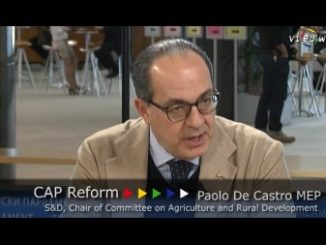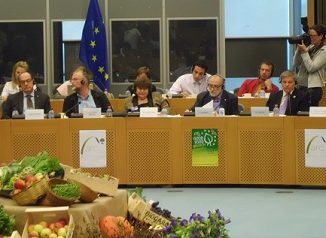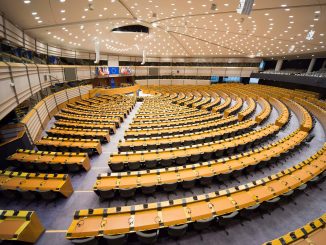On Friday, the European Parliament adopted its report on the reform of the Markets in Financial Instruments Directive (MiFID), a draft legislation intended to regulate EU financial markets by restricting food price speculation and high-frequency trading. The Parliament voted by 495 to 15 in favour of the draft law, which introduces mandatory limits for traders speculating in commodity derivatives, a practice blamed for food price volatility.
 NGOs have criticised the text for containing various loopholes. “Some MEPs voted to curb food speculation, but it was not enough, and it remains a threat”, said Anne van Schaik, sustainable finance campaigner at Friends of the Earth Europe. NGOs had been advocating for a limit to the number of contracts individual traders and trader groups are allowed in order to prevent traders from “cornering” markets and influencing prices. However, the adopted proposal only limits the maximum net position that traders may hold rather than the number of contracts. Furthermore, the new rules do not include over-the-counter trading, so-called shadow transactions.
NGOs have criticised the text for containing various loopholes. “Some MEPs voted to curb food speculation, but it was not enough, and it remains a threat”, said Anne van Schaik, sustainable finance campaigner at Friends of the Earth Europe. NGOs had been advocating for a limit to the number of contracts individual traders and trader groups are allowed in order to prevent traders from “cornering” markets and influencing prices. However, the adopted proposal only limits the maximum net position that traders may hold rather than the number of contracts. Furthermore, the new rules do not include over-the-counter trading, so-called shadow transactions.
European finance ministers are expected to agree on their position at the ECOFIN Council on November 13th. The Commission, Parliament and the Council of Ministers will then negotiate the final version of the text. According to Marc Olivier Herman, Oxfam’s EU Policy Adviser, “cracks in the text adopted today still need to be filled during talks with Member States to make sure it effectively staves off excessive speculation. This is crucial for the millions in poor countries who are hit by high and unpredictable food prices.”
- Oxfam: European Parliament draws line in the sand: financial markets must not play with food
- EurActiv: MEPs approve ban on ultrafast trading
- Friends of the Earth Europe: Food speculation still a threat following vote
- Open Letter to the EU Economic and Financial Affairs Council on curbing food speculation




